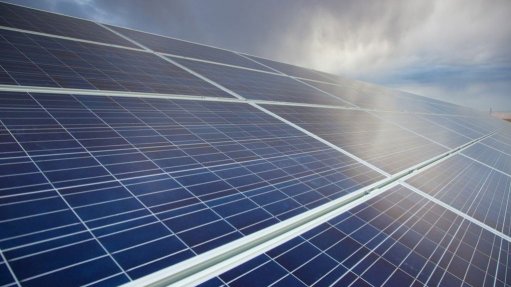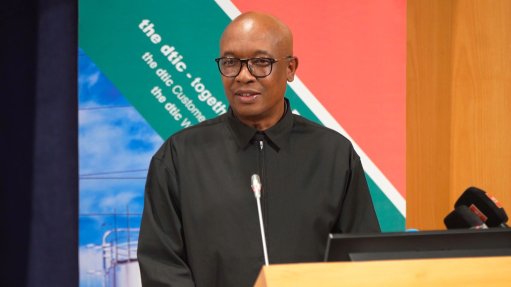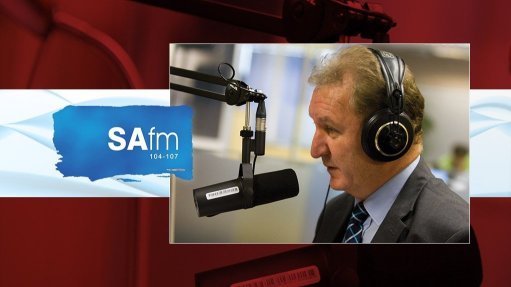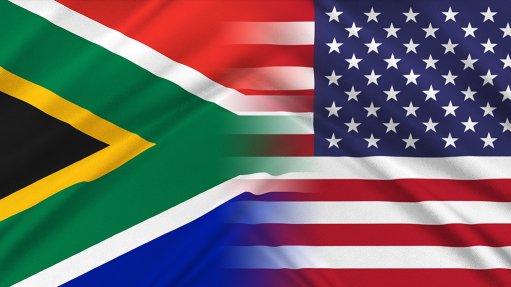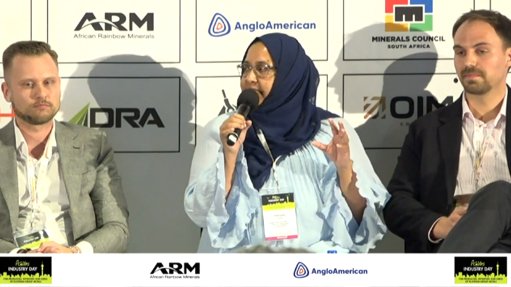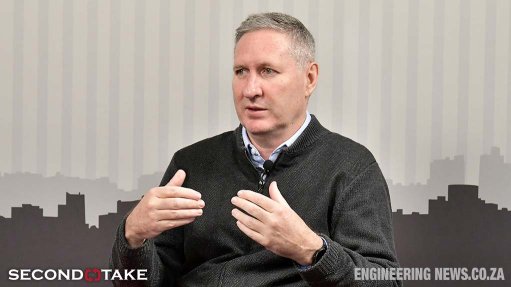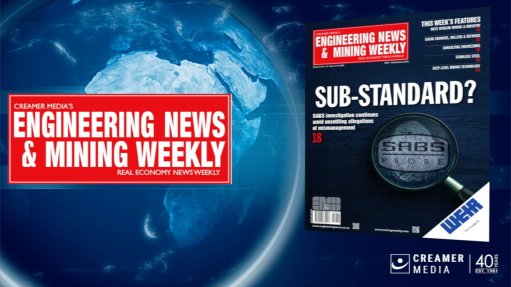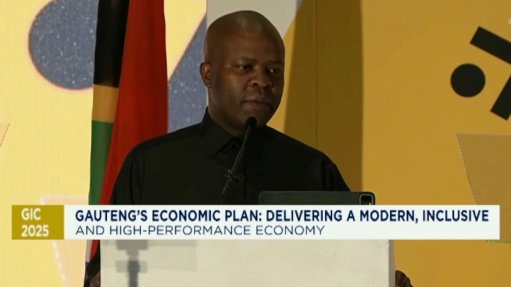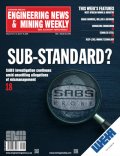Key enviro assessment launched for SA gas and power networks
The Council for Scientific and Industrial Research (CSIR) and the South African National Biodiversity Institute (SANBI) are undertaking a strategic environmental assessment (SEA) for the development of a phased gas pipeline network and the expansion of the electricity grid infrastructure (EGI) corridors.
The Department of Environmental Affairs commissioned the research as part of Operation Phakisa’s offshore oil and gas exploration lab, as well as Strategic Integrated Project 10 – or SIP 10 – which is focused on electricity transmission and distribution for all.
The Operation Phakisa Oceans Economy Lab aims to unlock the potential of the South African coast, with 11 initiatives identified as part of the offshore oil and gas exploration critical area. The development of a phased gas pipeline network was identified as Initiative A1.
The estimated timeframe for the project is 24 months. The corridors are expected to be identified and assessed, with supporting documentation completed and the legal implementation process agreed upon by the end of 2018. Thereafter, it will be submitted for Cabinet consideration and subsequent gazetting.
Nine 100-km-wide corridors have been identified as key areas where gas transmission pipelines are required to meet future energy requirements. The CSIR notes that these extend along the coast from the border of Namibia to the border of Mozambique, including an inland link from Richards Bay to Gauteng; from Sasolburg to the border of Mozambique through Gauteng and Mpumalanga; from Cape Town to Port Elizabeth through the Karoo; and a link from the Shale Gas SEA ‘sweet spot’ area to the coastal corridor between Mossel Bay and Port Elizabeth.
The development of each phase will be based on its own viable business case. The SEA will also include the preassessment of an extension of the Eastern and Western gazetted EGI corridors to the borders of Mozambique and Namibia respectively.
The EGI extension will support potential business cases extending to these neighbouring countries and facilitate potential power sharing. Three proposed additional EGI corridors are being considered as part of this SEA.
One issue that has been identified is that the environmental authorisation (EA) process being applied to linear infrastructure, including gas transmission pipelines and EGI, may be too rigid to be an effective assessment mechanism for these types of structures.
“The current process locks the routing options to an approved route, determined well in advance of any construction process, which results in many challenges, such as complicated servitude and landowner negotiations,” notes the CSIR.
Another challenge of the current EA process is the lengthy timeline for achieving EA, owing to the number of sector regulations triggered by the activity, such as water use licences and other permits. The CSIR further cites the cascading nature of authorisations, failure to facilitate strategic planning and investment on a spatial scale, as well as authorisations having a limited validity period, as some of the other challenges.
To address these challenges, the SEA team aims to streamline the EA process through the identification and preassessment of strategic corridors for gas pipeline development and future EGI expansion. It also aims to develop environmental management measures and planning interventions, through which requirements and specifications will be established to comply with when developing a gas pipeline or transmission powerline within the proposed corridors while informing the level of assessment required on the ground.
This process will, therefore, enable the developer to have greater flexibility when undertaking land negotiation and facilitate upfront infrastructure investment.
As part of their assessment, the CSIR and SANBI will undertake negative constraints mapping using available data sets and inputs from specialists to identify key environmental criteria that should be adhered to when the developer is planning the precise route of a gas pipeline or transmission line within the corridors.
Examples of key environmental criteria to take into consideration are protected areas, and critical biodiversity areas. Additional constraints, such as topography, erosion, current land-use and forested areas, will also be considered.
The results will serve to identify the optimum location for the proposed corridors, containing the lowest sensitivity areas and the least engineering constraints, and to inform suitable routing options for gas pipelines and EGI expansion.
The SEA, including the specialist assessments, will be made available for comment through the project website, which can be accessed from the CSIR landing page.
The SEA project team will consult with a wide range of stakeholders, including government, industry and specialists, to validate the findings of the assessment, but will also receive additional input based on national, provincial and local priorities.
As part of the public outreach plan for the SEA, two rounds of open public briefings in the study area were proposed, along with supplementary sector-specific meetings.
Round 1 was completed in November 2017, whereby six public briefings were undertaken in Cape Town and George, East London, Durban, Johannesburg and Springbok.
Interested and affected parties, as well as stakeholders, are encouraged to visit the project website, register their interest and submit comments using email or the stakeholder portal. ![]()
Comments
Press Office
Announcements
What's On
Subscribe to improve your user experience...
Option 1 (equivalent of R125 a month):
Receive a weekly copy of Creamer Media's Engineering News & Mining Weekly magazine
(print copy for those in South Africa and e-magazine for those outside of South Africa)
Receive daily email newsletters
Access to full search results
Access archive of magazine back copies
Access to Projects in Progress
Access to ONE Research Report of your choice in PDF format
Option 2 (equivalent of R375 a month):
All benefits from Option 1
PLUS
Access to Creamer Media's Research Channel Africa for ALL Research Reports, in PDF format, on various industrial and mining sectors
including Electricity; Water; Energy Transition; Hydrogen; Roads, Rail and Ports; Coal; Gold; Platinum; Battery Metals; etc.
Already a subscriber?
Forgotten your password?
Receive weekly copy of Creamer Media's Engineering News & Mining Weekly magazine (print copy for those in South Africa and e-magazine for those outside of South Africa)
➕
Recieve daily email newsletters
➕
Access to full search results
➕
Access archive of magazine back copies
➕
Access to Projects in Progress
➕
Access to ONE Research Report of your choice in PDF format
RESEARCH CHANNEL AFRICA
R4500 (equivalent of R375 a month)
SUBSCRIBEAll benefits from Option 1
➕
Access to Creamer Media's Research Channel Africa for ALL Research Reports on various industrial and mining sectors, in PDF format, including on:
Electricity
➕
Water
➕
Energy Transition
➕
Hydrogen
➕
Roads, Rail and Ports
➕
Coal
➕
Gold
➕
Platinum
➕
Battery Metals
➕
etc.
Receive all benefits from Option 1 or Option 2 delivered to numerous people at your company
➕
Multiple User names and Passwords for simultaneous log-ins
➕
Intranet integration access to all in your organisation






